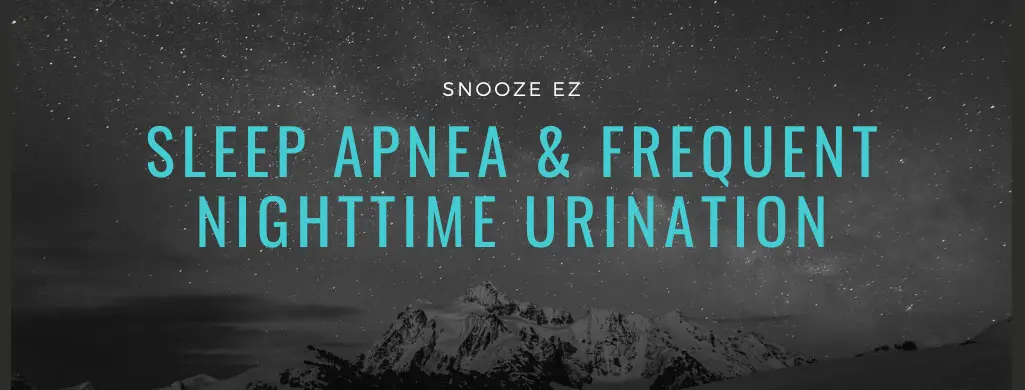Research shows there is a link between sleep apnea and frequent nighttime urination, but the direct result remains uncertain.
Sleep apnea and frequent nighttime urination (nocturia) are two conditions that can have a wide range of physical and psychological effects on those who suffer from them. In some cases, both can be caused by different underlying health issues.
Though, in many people, both seem to be related. I am Aaron, expert in sleep disorders. Let us explore why sleep apnea may cause frequent nighttime urination, as well a possible way to treat and manage the problem.
How Does Sleep Apnea Cause Frequent Urination?
Stress Hormones
When it comes to sleep apnea and frequent nighttime urination, there are three distinct theories about what’s going on. The first is that when people with sleep apnea stop breathing for extended periods of time during their sleep cycles, their body responds by releasing hormones that cause them to wake up feeling like they have to go to the bathroom.
This in turn disrupts their sleep cycle and can lead to more frequent trips to the restroom throughout the night.
Adrenaline Rush
The second theory is when the person with sleep apnea wakes up, they are not able to breathe in enough oxygen, so their body releases adrenaline to try to wake them up.
This adrenaline causes the body to wake up, and it also causes the need to urinate as a result of your body and bladder being so tense.
There is research looking into adrenaline and stress hormones more in depth in the military due to sleep deprivation causing these triggers in veterans and active members.
Oxygen Depletion
The third theory is that when people with sleep apnea stop breathing during their sleep cycles, they don’t get enough oxygen in their bloodstream which can result in an increase in urine production.
This increase is due to the lack of oxygen stimulating the kidneys. This causes them to be more likely to experience increased nighttime urination even if they don’t actually wake up feeling like they need to go.
It’s important to note that these theories are just speculation; there has not been any definitive research on the connection between sleep apnea and nighttime urination yet. However, there is anecdotal evidence from those who suffer from both conditions that suggest a link between them.
How to Treat Frequent Urination with Sleep Apnea
First of all, being treated for sleep apnea is the best way to stop frequent urination. If you are speculative you have it and are having symptoms mentioned above, then you need to see a doctor.
The reason can be explained by a study completed by Dutch researchers. They took 256 participants and treated them with CPAP therapy (continuous positive airway pressure). This is the standard for treating sleep apnea.
Out of the 256, 69% had reported that they got up at least twice a night to pee every night.
After receiving CPAP treatment ,over two-thirds of the participants improved their pee breaks in the middle of the night to only one trip. What is even more remarkable, half of those didn’t have to get up to pee in the middle of the night at all.
If you are being treated for sleep apnea already and are still waking up two or more times to pee at night, then more than likely it is not sleep apnea related. Though, if it has been a long time since your last updated sleep apnea test, there could be some new underlying issues going on.
Other Causes for Frequent Nighttime Urination
Other than sleep apnea, here are the common reasons for nocturia:
- Drinking anything within an hour before bed
- Caffeine
- Alcohol
- Salty Foods
- Bladder or urinary tract infection
- Pregnancy
- Diabetes
- Heart failure
- Medications
- Enlarged prostate
- Leg inflammation
- Veins in lower legs
Conclusion
Sleep apnea is a serious condition that can affect your overall health if left untreated. And as we have seen, it can be responsible for increased nighttime urination. It may come as a surprise that breathing issues can cause the frequent need to pee in the night, but there definitely is a link.
If you suspect that you or someone you know may be suffering from this condition, it is important to see your doctor as soon as possible for diagnosis and treatment options.
With proper diagnosis and treatment, it may be possible for those affected by sleep apnea-related nighttime urination issues find relief so they can enjoy a full night’s rest without interruption again!


